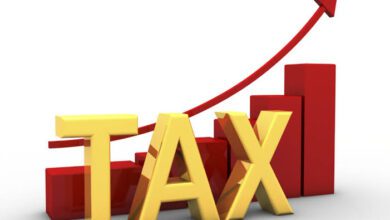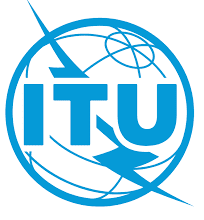Opinion: Emefiele’s Seven Years Of Central Banking

Mr. Godwin Emefiele, the Governor of the Central Bank of Nigeria (CBN), is a foremost development economist, with a quest to bequeath a central bank that is professional, apolitical, and people-focused in addition to building a resilient financial system that can serve the growth and development needs of the country.
Acknowledging successes recorded by his predecessors in financial stability, low inflation, exchange rate stability, efficient payments system and consistent monetary policy, the Governor on his assumption of office on June 4, 2014, noted that he would leverage those gains to champion policies that will promote macroeconomic stability.
Unpretentious of potential threats in the financial system, Emefiele declared then that the core of his vision would be to effectively manage potential threats to financial stability and create a strong governance regime conducive for financial intermediation, innovative finance, and inclusiveness. This he anchored on two pillars – managing factors that create liquidity shocks and zero tolerance for practices that undermine the health of financial institutions.
Emefiele never left anyone in doubt of his desire to chart a trajectory that distances from the ordinary. This, no doubt, came from the twin problem of endemic poverty and embarrassing youth unemployment pervading the country.
His steely focus on delivering on his mandate of ensuring economic stability, reflected in his unabashed passion and commitment for a better Nigeria drove the rollout of intervention windows in critical sectors of the economy – Agriculture, Power and Electricity generation (Nigeria Electricity Market Stabilization Facility and Nigerian Bulk Electricity Trading Payment Assurance Facility), Aviation, Textile, Cotton and Garment (TCG), the Presidential Fertilizer Initiative and healthcare, among others.
Barely a year in office in 2015, he introduced the audacious Anchor Borrowers’ Programme (ABP), a policy necessitated by the dwindling fortunes of the country from oil revenue, Nigeria’s mono-product, and major source of revenue.
Nigeria, a country naturally endowed with material and human resources to fend for itself, has embarrassingly embraced other peoples’ taste at the detriment of its economy. This taste has led to the exportation of jobs, created wealth in other nations and draining the country’s scarce foreign reserves.
These precarious uncertainties birthed the policy that suspended 41, and later 43 items, from the official forex window issued to protect and encourage their local farming and production, thus urging Nigerians to return to agriculture. To date, as part of the backward and forward integration policy of the Bank, 3,107,949 smallholder farmers have so far benefitted from the Anchor Borrowers’ Programme window as at April 2021.
In addition to the ABP, the CBN under Emefiele’s leadership have also launched about 34 interventions across critical sectors of the economy. Notably also is the launch of Youth Empowerment Programme (YEDP) in 2016 by providing credit to harness the entrepreneurial skill and innovative capacities of the youths through a well-structured business model. As at May 28, 2021, YEDP has had 585,593 beneficiaries and have received N462,722bn in credit support from its interventions window for MSMEs.
His aggressive pursuit of economic diversification got the backing of President Muhammadu Buhari, and his collaboration with the fiscal authority has largely made him successful on his mission. His re-appointment as the Governor of the Central Bank of Nigeria is a testament to this fact.
In 2020, the year had started on a promising note as economic indices and increased activities arising most especially, from the CBN sustained interventions in agriculture and Small and Medium Enterprises (SMEs). The outbreak of the COVID-19 pandemic halted that trajectory.
Nations shut their borders, and banned export of commodities, particularly rice. It is best left to the imagination what would have happened to Nigeria if the CBN intervention programmes and policies were not in place.
To mitigate the adverse effect of the outbreak on the economy, Governor Emefiele and his team, in quick succession rolled out targeted facilities, starting with a N50bn Targeted Credit Facility (TCF), followed by a N100bn credit support for healthcare sector to mitigate the effects of the pandemic.
Knowing he could not do it alone; he rallied the private sector stakeholders on a rescue mission. A private sector task force, the Coalition Against COVID-19 (CACOVID) was set up to assist the government and its agency, the Nigeria Center for Disease Control (NCDC) and the World Health Organisation (WHO).
The CACOVID spearheaded the task of pulling resources across industries to provide technical and operational support as well as funds, building advocacy through aggressive awareness campaign.
Governor Emefiele in the past seven years of central banking in Nigeria has witnessed some dramatic twist of events and challenges. Steering the nation out of two economic recessions is no mean feat.
Interestingly, the technique Emefiele deployed in resolving these challenges has been ingenious, rather far from usual expectations. This, to a reasonable extent attested to his leadership style and strategy since he stepped into office in 2014.
The security challenge in the country is indeed worrisome, and capable of obliterating the gains of the past seven years if not urgently addressed.
However, Godwin Emefiele had appealed recently to the government, and it is hoped that current effort of the security agencies will bring the desired respite and peace in the country.
Ademola Bakare writes from Abuja.






